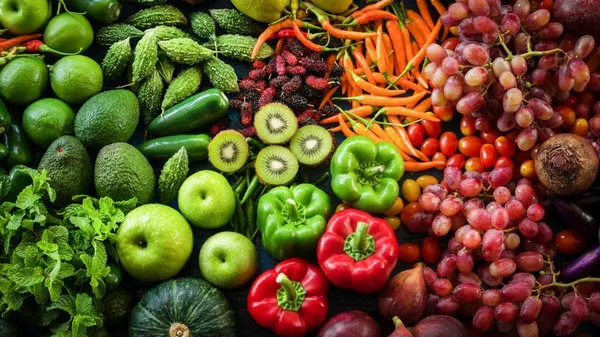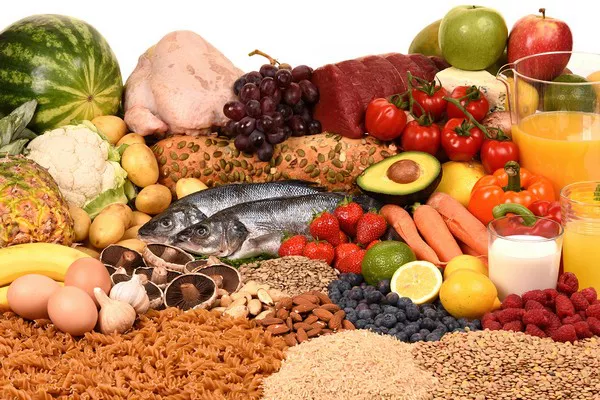Folic acid, a vital B vitamin, plays a crucial role in various bodily functions, including cell division and DNA synthesis. Obtaining an adequate amount of folic acid through your diet is essential for overall health and well-being. In this comprehensive article, we explore the rich array of foods that contain folic acid, the importance of this nutrient, recommended daily intake, and the implications of folic acid deficiency.
Folic Acid: A Nutrient for Vital Functions
Folic acid, also known as folate or vitamin B9, is a water-soluble B vitamin that is essential for a range of biological processes in the body. These processes include:
1. DNA Synthesis: Folic acid is a key player in the creation and repair of DNA, the genetic material in cells. This makes it crucial for normal cell division and growth.
2. Red Blood Cell Formation: Folic acid is involved in the production of red blood cells, which transport oxygen throughout the body. A deficiency can lead to anemia, characterized by fatigue and weakness.
3. Neural Tube Development: During early pregnancy, adequate folic acid intake is critical for the proper development of the neural tube in the developing fetus. A deficiency can result in neural tube defects, such as spina bifida.
4. Amino Acid Metabolism: Folic acid is essential for the breakdown and utilization of amino acids, the building blocks of proteins.
Given its diverse roles, maintaining sufficient folic acid levels in the body is essential for overall health.
[inline_related_posts title=”SEE ALSO” title_align=”left” style=”list” number=”3″ align=”none” ids=”1890,1864,1652″ by=”categories” orderby=”rand” order=”DESC” hide_thumb=”no” thumb_right=”no” views=”no” date=”yes” grid_columns=”1″ post_type=”” tax=””]
Dietary Sources of Folic Acid: Nature’s Bounty
Folic acid is naturally found in a variety of foods. Incorporating these foods into your diet can help ensure you meet your daily folic acid needs. Here are some notable sources:
1. Leafy Greens: Green Powerhouses
Spinach: This versatile leafy green is rich in folic acid. Whether in salads, smoothies, or cooked dishes, spinach is an excellent choice.
Kale: Another nutrient-dense leafy green, kale provides a healthy dose of folic acid and can be used in salads, stir-fries, or as a crispy snack.
2. Legumes: The Protein-Packed Group
Lentils: These tiny legumes are folic acid champions. They are versatile and can be used in soups, stews, or salads.
Chickpeas: Chickpeas, commonly used in hummus and curries, are a great source of folic acid.
3. Citrus Fruits: Zesty and Nutrient-Rich
Oranges: In addition to vitamin C, oranges provide folic acid. Enjoy them as a snack or as part of a refreshing citrus salad.
Lemons: Lemons are not only a flavorful addition to dishes but also contain folic acid.
4. Fortified Foods: Nutritional Boosters
Fortified Cereals: Many breakfast cereals are fortified with folic acid. Check the label for added nutrients.
Fortified Grains: Some bread and pasta products are enriched with folic acid, providing an easy way to incorporate this nutrient into your diet.
5. Avocado: The Creamy Superfood
Avocado: Besides being creamy and delicious, avocados are rich in folic acid and healthy fats. Spread avocado on toast or add it to salads and wraps.
6. Brussels Sprouts: Mini Nutrient Powerhouses
Brussels Sprouts: These miniature cabbages are packed with nutrients, including folic acid. Roast or sauté them for a tasty side dish.
7. Beets: A Vibrant Source
Beets: These colorful root vegetables contain folic acid. They can be roasted, boiled, or enjoyed in salads.
8. Asparagus: A Springtime Favorite
Asparagus: This springtime vegetable is not only tasty but also provides a good amount of folic acid. Grill or steam asparagus for a nutritious side.
SEE ALSO: Foods Highest in B Vitamins: An Essential Guide to Boost Your Health
Recommended Daily Intake of Folic Acid
The recommended daily intake of folic acid varies depending on age, sex, and life stage. Adequate intake is especially critical during pregnancy and early childhood. Here are the general guidelines:
- Infants (0-6 months): 65 micrograms (mcg) per day
- Infants (7-12 months): 80 mcg per day
- Children (1-3 years): 150 mcg per day
- Children (4-8 years): 200 mcg per day
- Children (9-13 years): 300 mcg per day
- Adolescents (14-18 years): 400 mcg per day
- Adults (19 years and older): 400 mcg per day
- Pregnant women: 600-800 mcg per day (before and during pregnancy)
- Breastfeeding women: 500-600 mcg per day
It’s important to note that certain medical conditions or medications may increase an individual’s folic acid requirements. Consulting with a healthcare provider or a registered dietitian can help determine your specific needs.
Folic Acid Deficiency: Recognizing the Signs
Inadequate intake of folic acid can lead to deficiency, which can have health implications. Recognizing the signs of folic acid deficiency is crucial:
1. Anemia: One of the earliest signs is a type of anemia known as megaloblastic anemia, which can lead to fatigue, weakness, and pale skin.
2. Neural Tube Defects: In pregnant women, folic acid deficiency can increase the risk of neural tube defects in the developing fetus.
3. Mouth Sores: Folic acid deficiency may result in mouth ulcers or sores.
4. Poor Growth: In children, insufficient folic acid can hinder growth and development.
5. Cognitive Impairment: Severe deficiency can affect cognitive function and lead to memory problems and difficulty concentrating.
A Sample Recipe Rich in Folic Acid
Here’s a simple and delicious recipe for a Folic Acid-Rich Spinach and Lentil Salad:
Ingredients:
For the Salad:
- 2 cups fresh spinach leaves, washed and chopped
- 1 cup cooked green or brown lentils (canned or boiled)
- 1/2 cup cherry tomatoes, halved
- 1/4 cup red onion, thinly sliced
- 1/4 cup crumbled feta cheese (optional for added flavor)
- 1/4 cup toasted almonds or walnuts
- Salt and pepper to taste
For the Dressing:
- 2 tablespoons extra-virgin olive oil
- 1 tablespoon balsamic vinegar
- 1 teaspoon Dijon mustard
- 1 clove garlic, minced
- 1/2 teaspoon honey or maple syrup (optional for sweetness)
- Salt and pepper to taste
Instructions:
Prepare Lentils: If you’re using dried lentils, cook them according to the package instructions until tender. Drain and set aside. If using canned lentils, rinse and drain them.
Toast the Nuts: In a dry skillet, toast the almonds or walnuts over medium heat until they become fragrant and lightly golden. Remove from heat and let them cool.
Make the Dressing: In a small bowl, whisk together the olive oil, balsamic vinegar, Dijon mustard, minced garlic, honey (if using), salt, and pepper. Taste and adjust the seasoning as needed. Set aside.
Assemble the Salad: In a large salad bowl, combine the chopped spinach, cooked lentils, halved cherry tomatoes, thinly sliced red onion, and crumbled feta cheese (if using).
Add Nuts: Sprinkle the toasted almonds or walnuts over the salad for a delightful crunch.
Drizzle Dressing: Drizzle the prepared dressing over the salad. Toss gently to combine, ensuring that the ingredients are evenly coated with the dressing.
Season and Serve: Season the salad with salt and pepper to taste. Taste and adjust the dressing or seasoning if necessary.
Serve: Divide the salad into individual serving bowls or plates. You can garnish with a little extra crumbled feta or a sprinkle of freshly ground black pepper if desired.
Conclusion
Folic acid is a vital nutrient that supports numerous bodily functions, from DNA synthesis to red blood cell formation. Ensuring an adequate intake of folic acid through a balanced diet that includes leafy greens, legumes, citrus fruits, and fortified foods can contribute to overall health and well-being. By recognizing the signs of folic acid deficiency and meeting recommended daily intake levels, individuals can harness the power of this essential B vitamin to support their body’s vital processes and enjoy a healthier, more vibrant life.
[inline_related_posts title=”Related Topics” title_align=”left” style=”list” number=”3″ align=”none” ids=”2027,2024,1984″ by=”categories” orderby=”rand” order=”DESC” hide_thumb=”no” thumb_right=”no” views=”no” date=”yes” grid_columns=”1″ post_type=”” tax=””]


































